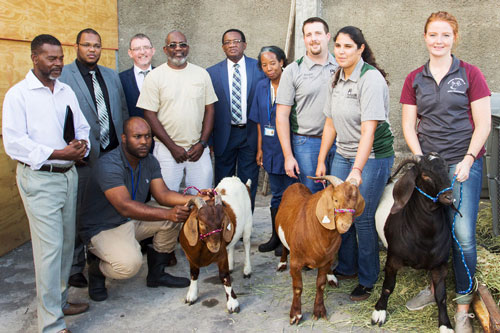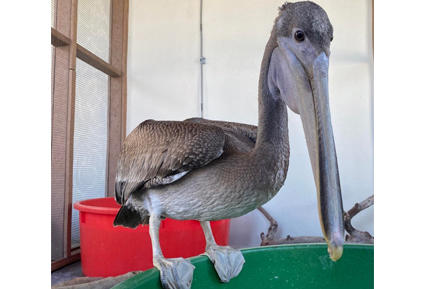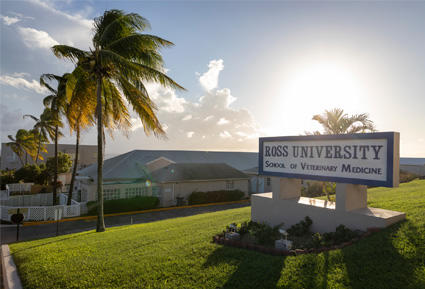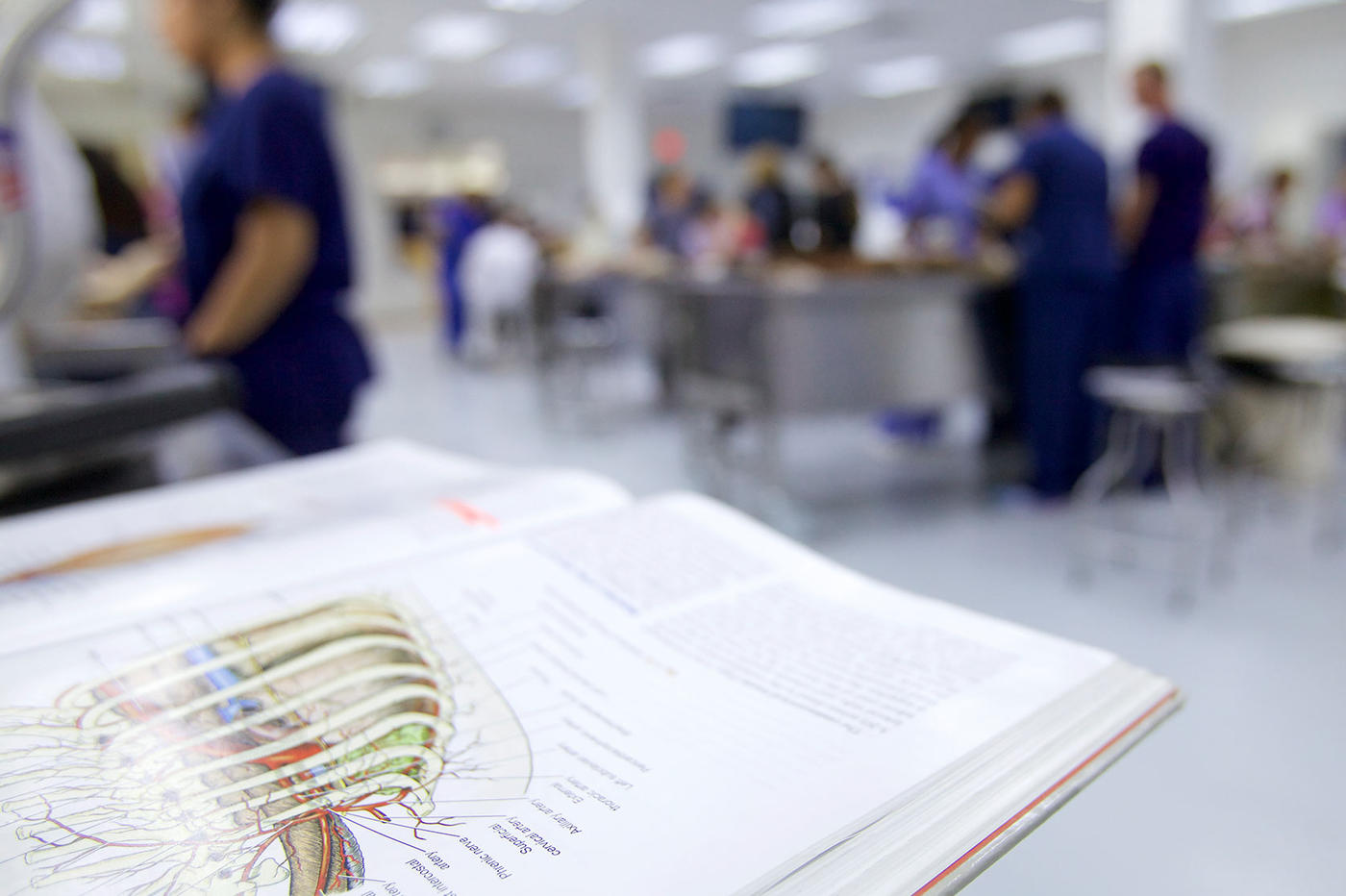A collaboration between Ross University School of Veterinary Medicine (Ross Vet) and the St. Kitts & Nevis Ministry of Agriculture will improve goat production on the island. Through the crossbreeding of local indigenous doe breeds with three Boer bucks from Florida, the project will help improve goat production and enhance the quality of livestock on the island within the next five to ten years.
The project is piloted by RUSVM student Kimberlee Ward and driven by the RUSVM Small Ruminant Student Club. Dr. Tracey Challenger-Walters, Chief Veterinary Officer of St. Kitts & Nevis, and Dr. Aspinas Chapwanya, RUSVM assistant professor of Theriogenology, supervise the project. Additionally, the project involves diverse stakeholders, such as local livestock farmers and Florida breeder Sara Prescott from Kissimmee River Boer Goats. RUSVM students will be extensively involved on every aspect of this project, from disease surveillance on the farm to post crossbreeding monitoring and tracking of the bucks and offspring.
To address the limited genetic diversity of goats on the island – in part due to inbreeding – the three different genetic lines of Boer goats from Florida will allow for more flexibility with the breeding schedule and much needed crossbreeding to produce offspring with better growth rates, higher quality of meat, and stronger resistance to local diseases.

“It is a common practice for farmers to crossbreed their local goats with exotic breeds such as the South African Boer goat to improve meat production,” said Prescott. “The South African Boer goat is universally recognized as the ‘meat goat’ of the world due to rapid weight gain from birth, ease of handling, high survivability, sustainability, hardiness and the ability to adapt to various environments ranging from very cold, high altitude climates to very hot, dry and humid climates at sea level. The Boer goat also has the capacity to thrive on low quality forage wherever it lives."
“We are truly excited to partner with the government of St. Kitts & Nevis and other stakeholders to help improve the productivity of local goats on the island,” said Sean Callanan, dean at RUSVM. “Projects like these give our students the valuable hands-on experience and an opportunity to apply the knowledge from classrooms directly in real-life settings.”
“We are particularly thankful to Kissimmee River Boer Goats for being part of the project and making sure that these goats are healthy and free from disease before they land on the island for cross-breeding,” said Dr. Aspinas Chapwanya.
“The livestock sector in St. Kitts generally experiences mediocrity in production standard due to inbreeding, which results in low carcass weight,” said Honourable Eugene Hamilton, Ministry of Agriculture, Human Settlement, Cooperatives and Environment. “This project will allow us to introduce a better mutton production and contribute to the development of sustainable livelihood for the farmers on the island.”







